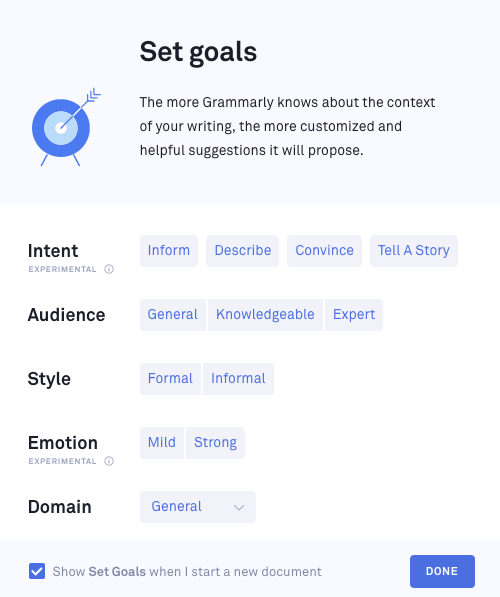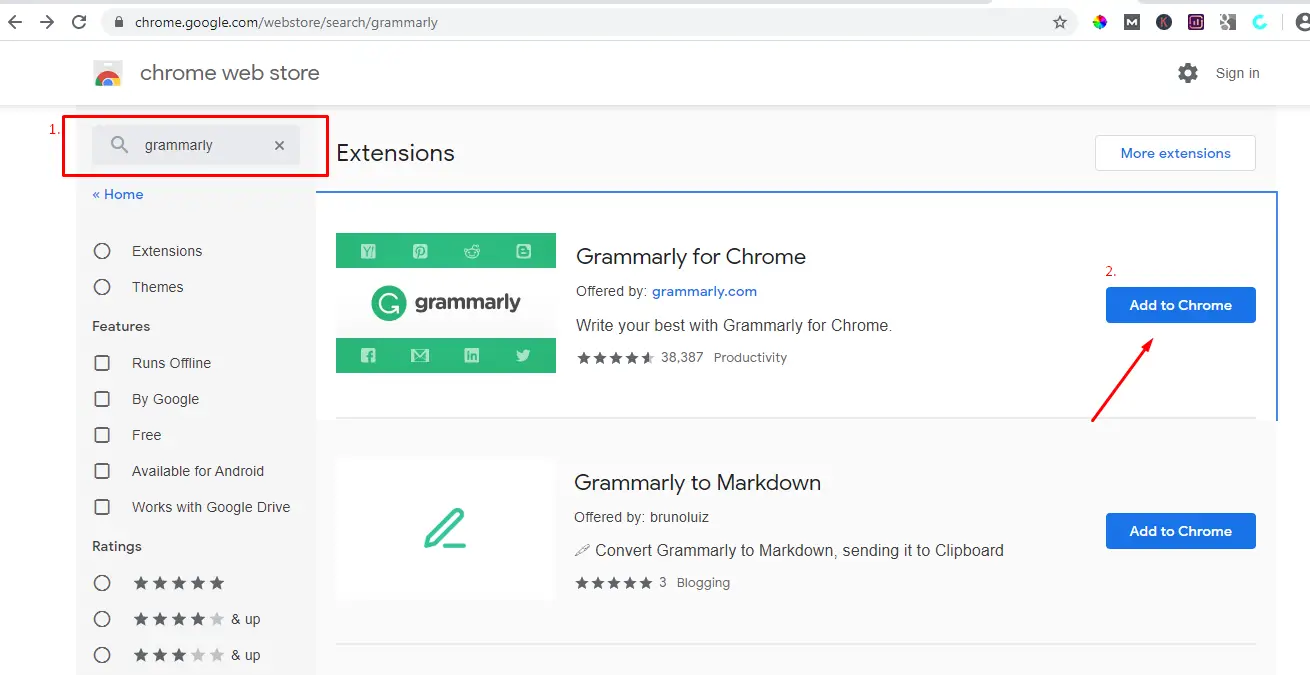Markdown is a lightweight and easy-to-use syntax for styling all forms of writing on the GitHub platform.
- What is Markdown? Markdown is a way to style text on the web. You control the display of the document; formatting words as bold or italic, adding images, and creating lists are just a few of the things we can do with Markdown. Mostly, Markdown is just regular text with a.
- 다운로드 및 설치 방법 베어 - 작문 및 markdown 편집자 를 PC와 Mac에서 사용하십시오. 설치하기 위해서 베어 - 작문 및 markdown 편집자 Windows PC 또는 Mac 노트북 / 데스크탑에서 Android 에뮬레이터를 다운로드하여 설치해야합니다.이 앤드 로이드 에뮬레이터는 무료로 다운로드하여 설치할 수 있습니다.
The Markdown syntax is inherently ambiguous. (Yes, the syntax of C is ambiguous too, but the points of ambiguity are known and limited.) To illustrate, consider. Can't find your answer? Please use our contact form and we will help you as soon as possible. Writing is tough when you have so many distractions going on around you.
What you will learn:
- How the Markdown format makes styled collaborative editing easy
- How Markdown differs from traditional formatting approaches
- How to use Markdown to format text
- How to leverage GitHub’s automatic Markdown rendering
- How to apply GitHub’s unique Markdown extensions
What is Markdown?
Markdown is a way to style text on the web. You control the display of the document; formatting words as bold or italic, adding images, and creating lists are just a few of the things we can do with Markdown. Mostly, Markdown is just regular text with a few non-alphabetic characters thrown in, like # or *.
You can use Markdown most places around GitHub:
- Comments in Issues and Pull Requests
- Files with the
.mdor.markdownextension
For more information, see “Writing on GitHub” in the GitHub Help.
Examples
Syntax guide
Here’s an overview of Markdown syntax that you can use anywhere on GitHub.com or in your own text files.

Headers
Emphasis
Lists
Unordered
Ordered
Images
Links

Blockquotes
Inline code
GitHub Flavored Markdown
GitHub.com uses its own version of the Markdown syntax that provides an additional set of useful features, many of which make it easier to work with content on GitHub.com.
Note that some features of GitHub Flavored Markdown are only available in the descriptions and comments of Issues and Pull Requests. These include @mentions as well as references to SHA-1 hashes, Issues, and Pull Requests. Task Lists are also available in Gist comments and in Gist Markdown files.
Syntax highlighting
Here’s an example of how you can use syntax highlighting with GitHub Flavored Markdown:
You can also simply indent your code by four spaces:
Here’s an example of Python code without syntax highlighting:
Task Lists
If you include a task list in the first comment of an Issue, you will get a handy progress indicator in your issue list. It also works in Pull Requests!
Tables
You can create tables by assembling a list of words and dividing them with hyphens - (for the first row), and then separating each column with a pipe |:
Would become:
| First Header | Second Header |
|---|---|
| Content from cell 1 | Content from cell 2 |
| Content in the first column | Content in the second column |
SHA references
Any reference to a commit’s SHA-1 hash will be automatically converted into a link to that commit on GitHub.
Issue references within a repository
Any number that refers to an Issue or Pull Request will be automatically converted into a link.

Username @mentions
Typing an @ symbol, followed by a username, will notify that person to come and view the comment. This is called an “@mention”, because you’re mentioning the individual. You can also @mention teams within an organization.
Automatic linking for URLs
Any URL (like http://www.github.com/) will be automatically converted into a clickable link.
Strikethrough
Any word wrapped with two tildes (like ~~this~~) will appear crossed out.
Emoji
GitHub supports emoji!
To see a list of every image we support, check out the Emoji Cheat Sheet.
Last updated Jan 15, 2014
The Scholarly Commons is a great place to write the next great American novel; in fact, I’m surprised it has not happened yet (no pressure dear patrons — we understand that you have a lot on your plates). We’re open Monday-Friday from 9-6 and enjoy a well-lit, fairly quiet, and overall ideal working space, with Espresso Royale and the Writing Center nearby. But actually getting that writing done, that’s the real challenge. Luckily, we have suggestions for tools and software you can use to keep writing and stay on track this semester!
Writing Your First Draft:
Yes, MS Word can be accessed for free for University students through the Web Store and you can set it up to better address your research needs with features like the Zotero and Mendeley plugins to incorporate your references. And don’t forget you can go to Word > File > Options > Proofing > Writing Style and select Grammar and Style and Settings to set what Spellcheck will check for so that passive voice gets underline. However, believe it or not, there are word processors, other than MS Word, that are better for organizing and creating large writing projects, such as novels, theses, or even plays!
Scrivener
Scrivener is a word processor created with novelists in mind that lets you organize your research and notes while you are writing. With an education discount, a license for Scrivener costs $38.25. Scrivener is very popular and highly recommended by two of the GAs here at Scholarly Commons (you can email Claire Berman with any questions you may have about the software at cberman2 [at] illinois.edu). To really get started, check out our online copies of Scrivener: An Absolute Beginner’s Guide and Scrivener for Dummies!
Mellel
Unfortunately, Mellel is only available on Mac. An educational license for the software costs $29. To some extent Mellel is similar in style and price to Pages for Mac, but also shares similarities with MS Word for Mac. However, this word processor offers more options for customizing your word processing experience than Pages or MS Word. It also provides more options for outlining your work and dividing sections in a way that even MS Word Notebook version does not, which is great if you have a large written work with many sections, such as a novel or a thesis! Mellel also partners with the citation managers Bookends and Sente.
Markdown Editors like Ulysses
Ulysses is a simple and straightforward word processor for Mac, but you do have to write in Markdown without a WYSIWYG editor. It costs $44.99 for Mac and $24.99 for iOS. However, it has many great features for writers (such as built in word count writing goals for sections of a paper, and Markdown makes outlining work very easy and simple). We have discussed the value and importance of Markdown elsewhere on the blog before, specifically in our posts Digital Preservation and the Power of Markdown and Getting Started with Markdown, and of course, want to remind all of our lovely readers to consider doing their writing in Markdown. Learning Markdown can open up writing and digital publishing opportunities across the web (for example: Programming Historian tutorials are written in Markdown). Plus, writing in Markdown converts easily for simple web design without the headache of having to write in HTML.
Grammarly Sign Up
Staying Focused:
Maybe you don’t want to buy a whole new word processor. That’s fine! Here are some tools that can help creating the “write” environment to get work done:
Freedom : costs $2.50 a month, so Freedom is not free, indeed. This is an an app that allows you to block websites and even the internet, available for Mac, Windows, iOS devices. This app also has a lock feature that will not allow you to make changes to what is blocked for a set period of time.
RescueTime : another app option. Taking a slightly different approach to the rest here, the lite version of this app helps you track how you use your time and what apps and websites you use the most so that you can have a better sense of what you are doing instead of writing. The premium version, which costs $54 a year, allows you to block distracting websites.
SelfControl: a Mac option but Open Source, with community built Linux and PC versions, and most importantly it’s free! This app allows you to block websites, based on their server, for a set period of time, in which there is basically NOTHING you can do on your computer to access these sites. So choose which sites to block and the time limit wisely.

Editing Tools:
Hemingway
Grammarly Markdown
Named after Ernest Hemingway, this text editor is supposed to help you adapt his style of writing, “bold and clear.” When you paste your text into the free web version, the applet gives you the text’s reading level as well as pointing out instances of awkward grammar, unnecessary or complicated words and adverbs, and sentences that are too long or too complicated.There’s a Desktop version available for $20 though I honestly don’t think it’s worth the money, though it does give another simple space on your computer to write and get feedback.
A note about Grammarly
Grammarly Markdown Download
This is an alternative to MS Word spell check with a free version to add to your browser. As a browser add-in, it checks automatically for critical spelling and grammar mistakes (advanced ones cost a monthly fee) everywhere you write except situations where you’d really want extra spell check such as Google Docs and can be wonky with WordPress. You can always copy and paste into the Grammarly window, but at that point, you’re probably better doing spell check in MS Word. There are also only two versions of English available, American and British (take that Australia!). If you are trying to learn English and want instantaneous feedback while writing on the internet, or studying for high school standardized tests, or perhaps a frequent YouTube commenter in need of a quick check before posting, then Grammarly is for you. For most people at Scholarly Commons, this is a plugin they can skip, though I can’t speak for the paid version which is supposed to be a little bit better. If you uninstall the app they try to guilt trip you, so heads up.
Vs Code Grammarly
SpellCheckPlus: It’s BonPatron in English! Brought to you by Nadaclair Language Technologies, this web-based text editor goes beyond MS Word’s spellcheck to help identify grammar errors and ways to make your writing sound more normal to a native (Canadian) English speaker. There is a version that costs money but if you don’t import more than the allotted 250 words of text at one time you will be fine using the free version.
Let us know what you think and any tools we may have missed! Happy writing!
Grammarly Paste Text

And to learn more and find more great productivity tools, check out:




